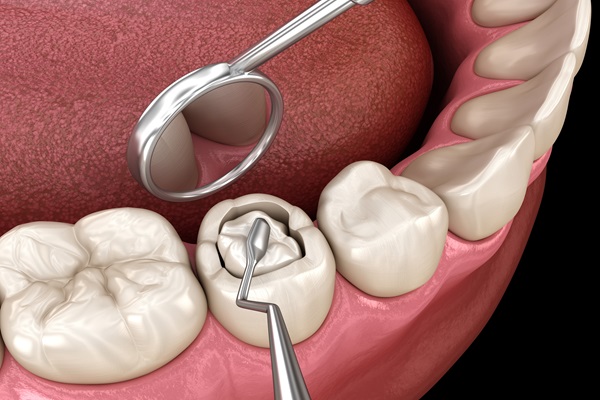Types of Dental Crowns

Do you need dental crowns to restore your teeth? If so, you want to know the different crown materials available before you move forward. While your dentist can recommend a material for you, it is still wise to understand your options prior to your appointment.
Dental crown materials
People can choose from a variety of materials for dental crowns. Materials vary regarding durability and appearance. Learn the difference between ceramic, porcelain-fused to metal, gold and base metal alloy crowns.
Ceramic crowns
Ceramic crowns are appealing because of the natural look the material provides. These crowns are made to look just like natural teeth, so no one knows that the wearer has undergone a dental restoration. Ceramic crowns are not durable enough to withstand the heavy biting forces of the back teeth. These crowns can chip and break on the back teeth but are a good option for the front teeth.
Porcelain-fused to metal crowns
Dentists often recommend porcelain-fused to metal crowns for the back teeth. The metal structure makes the crown durable, while the porcelain exterior matches the existing teeth. The combination of metal and porcelain makes these crowns strong and aesthetically pleasing.
Gold crowns
Gold is a good option for crowns. The metal is very durable and likely to last for a long time, even when people grind their teeth. This material is not likely to wear down the opposing teeth and dentists do not have to remove as much of the natural tooth structure to place gold crowns. Also, instead of bonding the crown in place, gold crowns can be cemented. This is more tolerable for patients who are sensitive to the bonding process.
There are some drawbacks, though. First, gold crowns do not blend in with the natural teeth. Also, gold conducts hot and cold temperatures. This can make the site of the crown sensitive. This usually goes away after a few weeks.
Micro-gaps are also a concern with gold crowns. These gaps can occur along the margins of the crown. Bacteria can enter the gaps and cause the remaining tooth to decay.
Base metal alloys crowns
Crowns made of base metal alloys are also durable and strong. The crowns do not wear down the opposing teeth, and like gold crowns, the dentist only has to remove the minimum amount of tooth structure to place it.
Dental crowns made of base metal alloys do not blend in with the natural teeth. Many people choose these crowns for the back teeth since the restoration is not as visible. Then they can benefit from the strength the crowns provide.
Choosing a dental crown material
It is critical to choose the right dental crown material. You want something that meets your aesthetic needs while providing the durability necessary for the restoration to last. Ask your dentist if you should get ceramic, porcelain-fused to metal, gold or base metal alloy crowns. Your dentist will consider various factors, including the location of the damaged tooth and help you make a wise decision.
Request an appointment here: https://www.emergencydentistinorlando.com or call Maitland Square Dentistry at (407) 337-1112 for an appointment in our Maitland office.
Check out what others are saying about our services on Yelp: Read our Yelp reviews.
Related Posts
The lifespan of a dental filling is limited. Due to normal wear and tear, a replacement may be necessary. When a filling deteriorates or comes loose, your tooth loses the protection that it has against injury and decay and will be more vulnerable to dangerous bacteria. To avoid more dental issues in the future, you…
A dental crown can save a tooth that is in danger of extraction. Dental crowns serve a dual purpose. They reinforce the tooth structure and improve the appearance of the smile at the same time. This means that a dentist could recommend a crown as a treatment for tooth decay or injury. A cosmetic dentist…
The time and effort that go into fitting a dental crown suggest a permanent restoration. Maybe it is the fact that installing a dental crown often requires multiple dentist visits. It could be the permanence that comes with the removal of enamel before the placement of a crown. Dental crowns that sit on dental implants…
A dental crown is a versatile restoration that can be used to address a wide range of dental issues like a cracked, chipped, decayed, deformed, or broken tooth. The crown covers up the part of the tooth that is visible above the gums, protecting it from further damage and acids made by oral bacteria.The severity…


